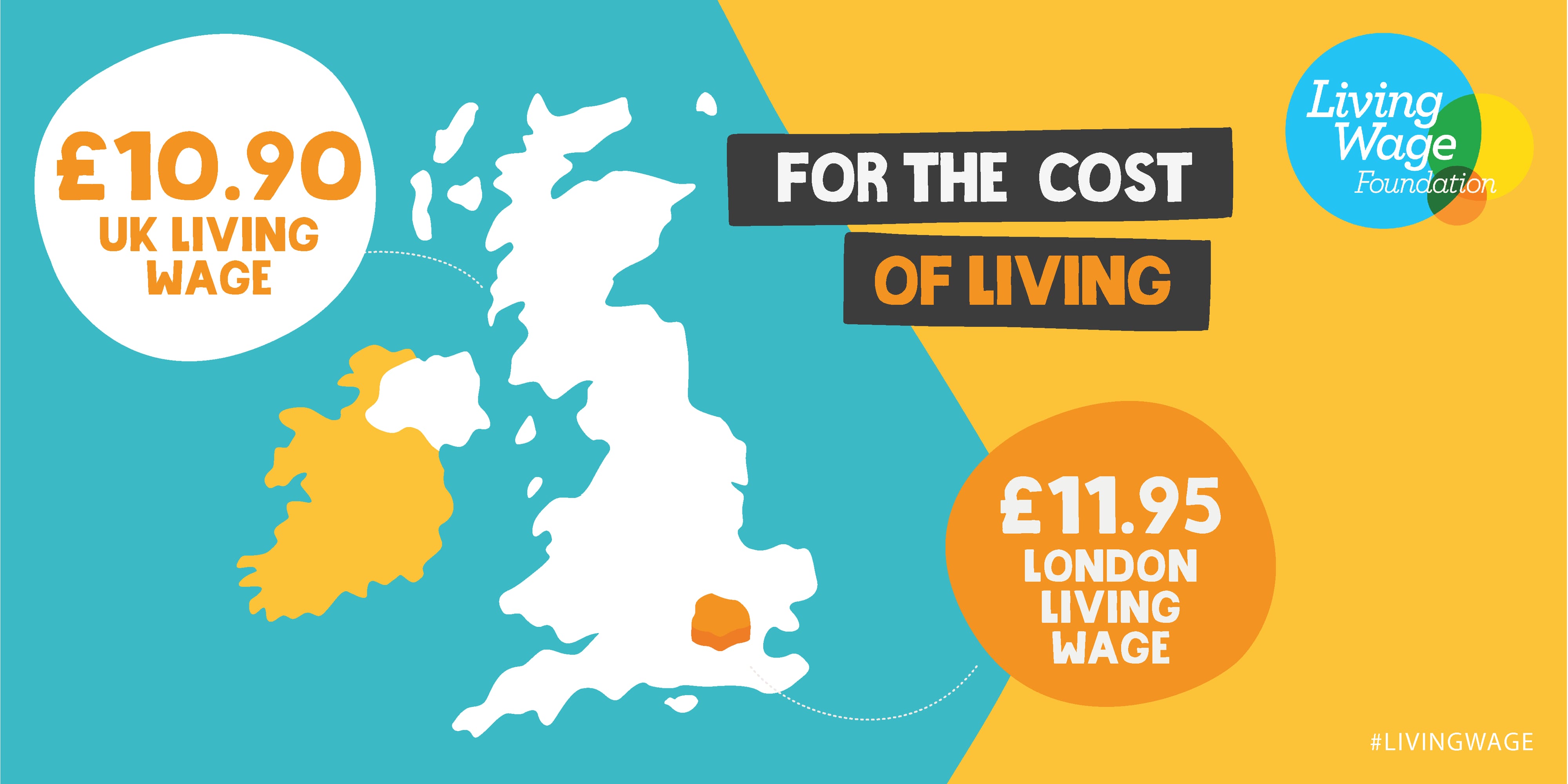
Pay will increase for thousands of workers as the rate for the real Living Wage rises to £10.90 across the UK and £11.95 in London.
The Living Wage Foundation have announced an increase of 10.1% to the Living Wage in the UK, rising by £1 from 2021/2022 across the UK and 90p in London, the largest year-on-year increase in the Foundation’s 11-year history.
The announcement will support almost 400,000 people through the cost-of-living crisis, expected to worsen this winter. Paying the Living Wage helps people heat their homes, eat healthily and afford bills, all things which have a direct impact on physical and mental health.
The health of people in lower paying jobs is expected to deteriorate further. Research published by Living Wage Foundation last week showed that 78% of low paid workers are experiencing the worst financial period of their lives. A considerable drop in living standards is clear, with over two thirds of low paid workers reporting increased levels of anxiety and a worse quality of life.
There are 4.8m workers paid less than the real Living Wage. Research published last week by the Living Wage Foundation found that over the past six months more workers are skipping meals and using food banks than ever before.
The real Living Wage is independently calculated based on the basic cost of living in in the UK and in London. The government’s minimum wage - the National Living Wage (NLW) is currently set at £9.50 per hour. This rate does not apply to those in apprenticeships and people aged 16-23. The real Living Wage applies to everyone over the age of 18.
The Trust supports the Living Wage because low pay leads to worse health. People’s Health Trust is a principle partner of Living Wage Foundation, a member of the Living Wage Advisory Council and is one of the funders supporting Living Wage Places. The Trust also helped found the Living Wage Funders scheme to help end low pay in the voluntary and community sector.
